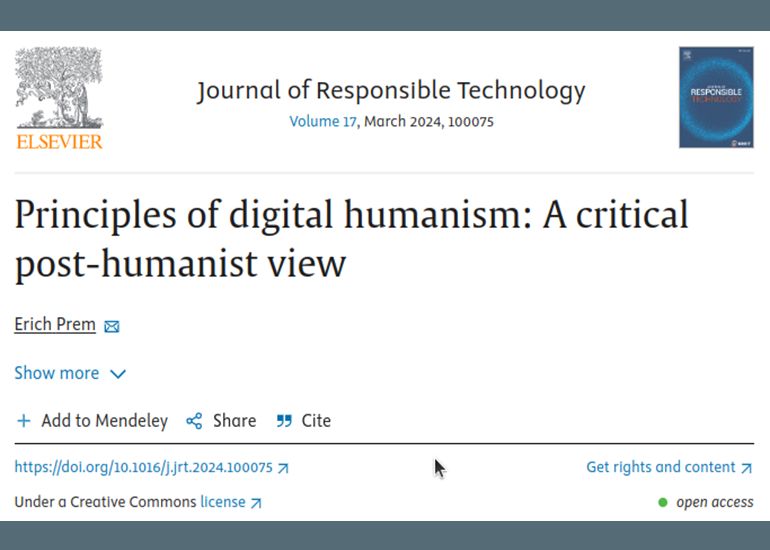Principles of digital humanism: A critical post-humanist view
Reflections on digital humanism by Erich Prem.

Abstract
Digital humanism emerges from serious concerns about the way in which digitisation develops, its impact on society and on humans. While its motivation is clear and broadly accepted, it is still an emerging field that does not yet have a universally accepted definition. Also, it is not always clear how to differentiate digital humanism from other similar endeavours. In this article, we critically investigate the notion of digital humanism and present its main principles as shared by its key proponents. These principles include the quest for human dignity and the ideal of a better society based on core values of the Enlightenment.
The paper concludes that digital humanism is to be treated as a technical endeavour to shape digital technologies and use them for digital innovation, a political endeavour investigating power shifts triggered by digital technology, and, at the same time, as a philosophical endeavour including the quest to delineate its scope and to draw boundaries for the digital.
Methodologically, digital humanism is an interdisciplinary effort to debate a broad range of digitisation shortfalls in their totality, from privacy infringements to power shifts, from human alienation to disownment. While it overlaps with a range of established fields and other movements, digital humanism reflects a new academic, engineering, and societal awareness of the challenges of digital technologies.
It is accessible here: https://doi.org/10.1016/j.jrt.2024.100075 (Open access)

